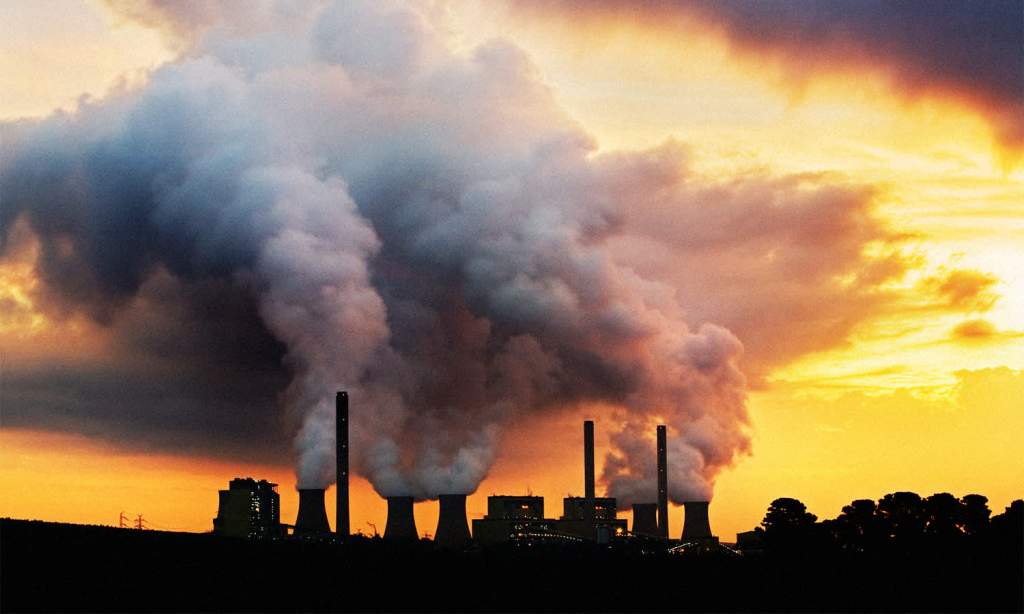After much huffing and puffing, the Australian government has finally joined the rest of the world in offering what it calls a “plan” to get to net zero emissions by 2050.
Prime Minister Scott Morrison announced the government’s strategy moving forward would — predictably — lean heavily on emissions capture technologies and carbon sequestration, ideas that have yet to be proven to work.
He titled his strategy “the Australian way,” saying in a speech that Australian’s want action on climate change but they don’t want “electricity bills to skyrocket, the lights to go off, for their jobs to be put at risk or for the way of life in rural and regional communities to be sacrificed”.
$20 billion will be invested in carbon capture while a priority will be put on delivering “ultra-low cost” solar power.
Energy Minister Angus Taylor lauded then “world-leading” achievements of Australia for its rooftop solar capabilities — policies, once more for the people in the back, that the current administration has done little to nothing to support.
The announcement comes after weeks of internal coalition party debate between the Liberals and the Nationals, with many of the latter party being set against emissions reductions targets over fears it will impact regional fossil fuel jobs — jobs that would easily be replaced many times over with investment in green technology.
While Morrison declined to say what exactly was conceded to the Nationals in order to get their “in principle” support on the policy, however, the new plan seeks to create an estimated 62,000 jobs in regional mining and heavy industry jobs.
The Productivity Commission will also be required to release five year updates to measure the impact that cutting emissions is having on regional communities.
“That will monitor the impact, the socio-economic impact, of our plans into the future,” Morrison said.
“So I can say to rural and regional Australians this is a good plan for you. It’s a good plan for all Australians.”
Rather than choose to invest in green energy — the practicalities of which are daunting but becoming less so by the day — Morrison’s plan appears to centre around doing more of the same.
The official release is peppered with coalition buzz words and campaign slogans and falls very far short of constituting anything that any reasonable person would consider a genuine plan for achieving net zero.
"The plan is based on our existing policies" pic.twitter.com/7sDrG4bJ7J
— Laura Tingle (@latingle) October 26, 2021
The announcement is made just days ahead of the Glasgow climate summit in which world leaders are expected to make strong pledges to reduce emissions by 2030 and achieve net zero by 2050.
However, the government has declined to update their 2030 target, with Morrison saying that “We will also not be breaking the pledge we made at the last election by changing our 2030 emission reductions targets”.
The government’s latest modelling appears to show that Australia is already on target to reduce emissions by 30-35% below 2005 levels, although this could largely be down to emissions reductions strategies implemented by the states.
A little breakdown of major emissions sectors in the Australian government’s net zero plan
Soil carbon and capture/storage is doing a lot of the heavy lifting here pic.twitter.com/9kZkCNvsNe
— Josh Butler (@JoshButler) October 26, 2021
Although the plan to reduce emissions by 26-28% was agreed upon at the Paris climate summit in 2015, it is already well below what most other nations are promising and far below the 45% reduction that the UN is recommending if we are to restrict global warming below 1.5 degrees Celsius.
Morrison, weirdly, referred to Bill Gates in defending sticking the course on the 2030 plan, saying that “forcing outcomes by 2030 with unrealistic targets can divert resources from technologies with longer lead times that will be essential to achieving 2050 objectives”.
“We will keep making sensible commitments and doing our best to exceed them”.
Gates made the point in his book How to Avoid a Climate Disaster and was actually referring to achieving net zero by 2030, something he believes is unrealistic.
His argument was that replacing dirty fuel sources like coal with less-bad-but-not-great sources like natural gas to achieve a temporary dip in emissions is a poor strategy when we can invest in green energy long term that may take longer to have an effect.
It’s not quite the ‘Bill Gates doesn’t support 2030 emissions reductions’ line that Morrison is playing it off to be.
I don't understand how this constitutes a plan. pic.twitter.com/1V1bf49ihc
— Adam Morton (@adamlmorton) October 26, 2021
The reliance on technology to reduce emissions while doing very little in the way of wholesale economic change is something that the Climate Council of Australia has long warned is merely a scapegoat to continue burning fossil fuels in the hope that innovation will save us down the line.
Countries like the US and the UK have long been wary of Australia’s performance at global climate summits and have cautioned Australia that arriving at Glasgow with little more than bluster and misdirection will not go down well.
We’ve been barred from speaking at these types of events before and it remains to be seen just how the rest of the world — and the voters — will swallow such a flimsy approach to a looming global disaster.
Read more stories from The Latch and subscribe to our email newsletter.







